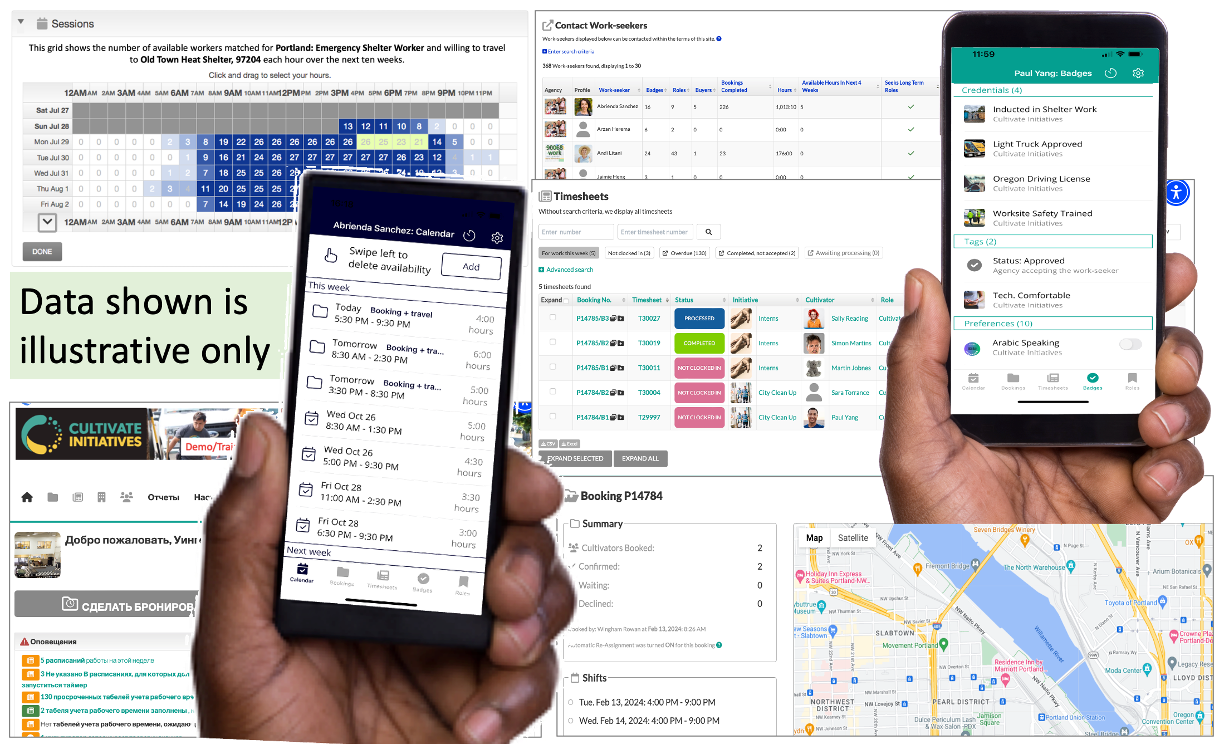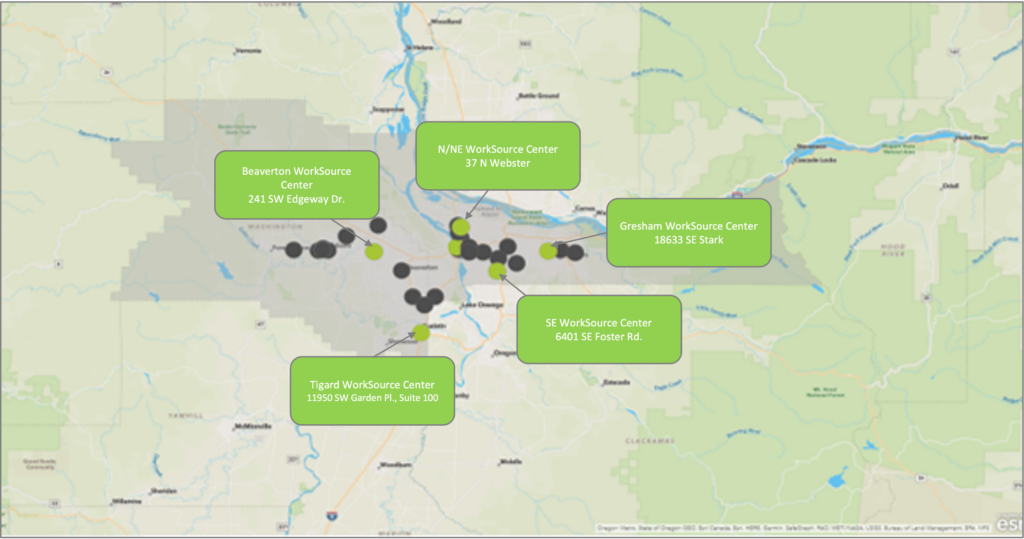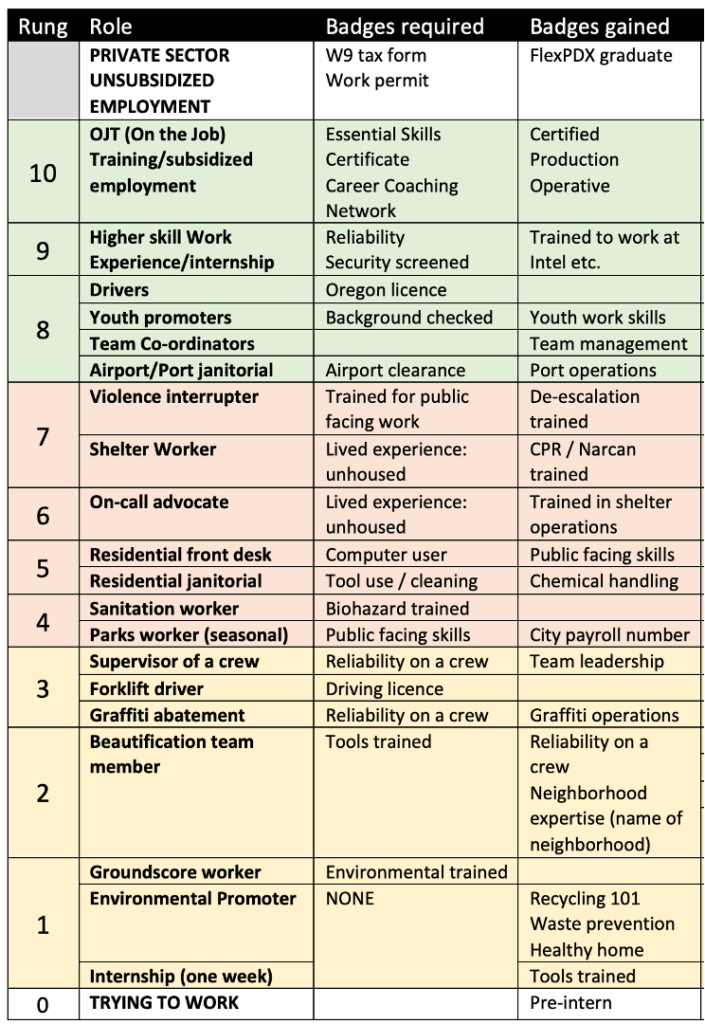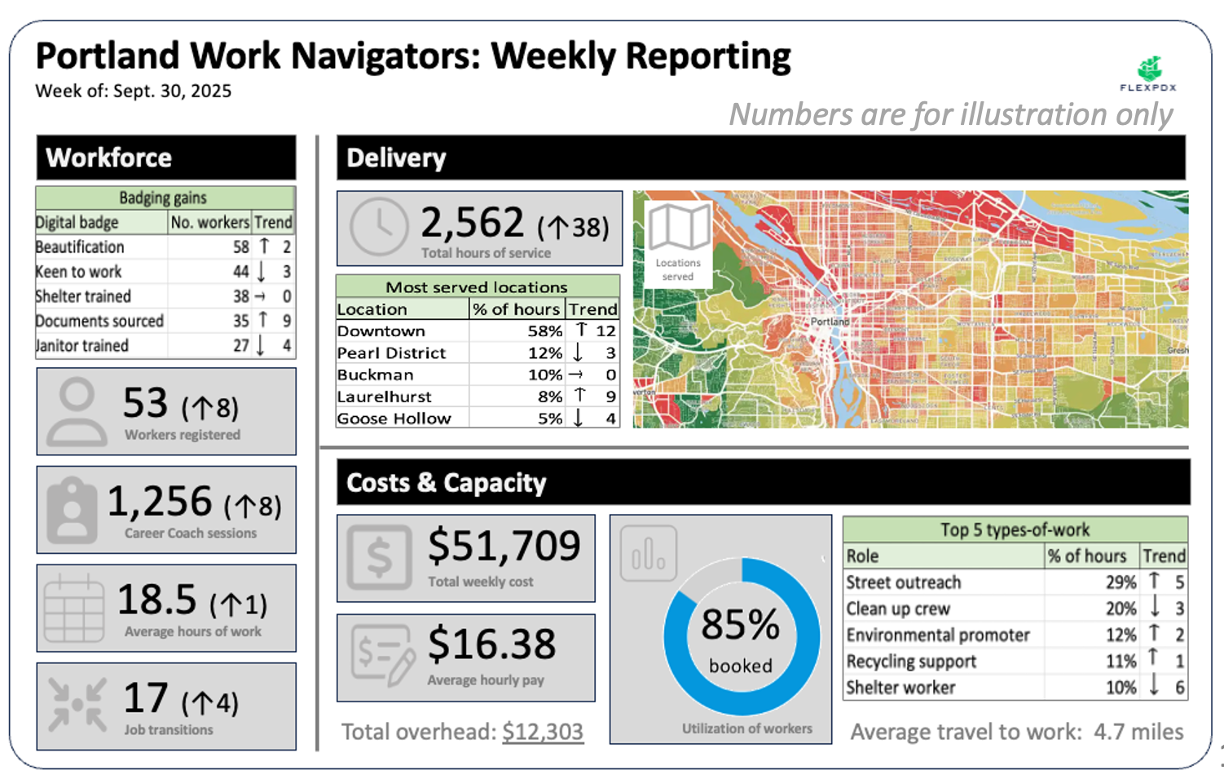FlexPDX: Serving our Hourly Labor Market

Some breadwinners have a job with regular hours. Others work a more variable schedule. As labor market shortages affect the region, this flexible workforce needs not just opportunity, but support and development across our region.
Some workers with variable hours are working around the changing needs of their employers. Others live complex lives and need to fit bursts of work around day-to-day uncertainties in childcare, medical issues, family caregiving, or maintaining their existing part-time employment. Many are just not ready for full-time work, but can work a few hours today, maybe some more tomorrow, as they prepare for a full transition to the workforce.
Our Vision
FlexPDX aims to meet each of these diverse workers and job seekers where they are. Is someone seeking extra hours? More valuable skills? A first toehold on the labor-market ladder? Better protections at work? Insights into employers’ needs? A bridge to full-time work? FlexPDX aspires to provide all of these.
We need to serve both the region’s economy and employers of flexible labor. How are public investments to prepare and support workers being leveraged to shape a more inclusive and progressive labor market? Where are our skills gaps? What are the patterns of availability for extra work as people seek to increase hours, income, and skills? Our data can inform business development and regional policy for all these questions and more, and experiment with new models of support.
The model must be driven by a shared commitment to focus and prioritize investments to achieve common goals. Local organizations must be empowered to do what they do best, and open to collaboration to produce better outcomes for people and the community.
What’s New About FlexPDX?
Our program is built around five pillars:
Collective Impact: The region’s public workforce system comprises more than 40 public agencies and community-based organizations (CBOs). By extending this ecosystem into variable, non-traditional employment, we can unlock the potential of these workers and their skills, offer personalized work hours to people who need them the most, attract further resources into CBOs, and address regional labor shortages.
Work Navigators: Worksystems already funds more than 100 Career Coaches, based in community organizations, supporting people’s transitions into quality jobs. FlexPDX will extend this concept to navigators focused on assisting individuals needing incremental entry into the workforce.
A Progression Ladder: Irregular work should not be survival work. People with uncertain hours should be entitled to prove themselves and move upwards, gaining new skills in line with local labor-market needs. We are assembling a ladder that – to cite just one example — facilitates smooth transition from time on a city beautification crew to assignments with landscaping companies to the next step on someone’s career path.
A Distinctive Online Platform: Originally developed in British government programs, and also launched by public agencies in California, the system underpinning FlexPDX’s apps and websites is configured for each participating organization, adopting their branding and following their rules. It manages hour-by-hour work with multiple controls, using digital badges to capture each person’s unique value: their lived experience, training, readiness for specific tasks, and so on.
Data and Analytics: We are working with stakeholders to determine the metrics that matter for measuring outputs. We anticipate dashboards offering visibility of our non-standard workforce and tracking service delivery, utilization (ratio of hours available for work to hours worked), skills gains, and number of entrants into the labor-market. All this can inform an array of experimentation by any stakeholder –investing in upskilling, or in support such as childcare, for example — to test and then expand interventions that cost-effectively tackle pressing regional issues.
Who is Involved?
Worksystems Inc: The public workforce investment board serving the City of Portland, and Washington and Multnomah Counties, invests in and coordinates workforce training and education programs with 40 agency and community partners.

Cultivate Initiatives: A prominent community organization serving the unhoused with a long-standing interest in employment support.
MM4A non-profit: The organization that emerged from British government initiatives to create platforms that protect, advance, and empower irregular workers. It is funded in the U.S. by national philanthropies and government bodies.

Portland State University: PSU’s Center for Homelessness and Action is conducting research to identify publicly subsidized work, strategies, and resources.
A Regional Oversight Panel: We are assembling a group of local organizations to oversee FlexPDX and hold us accountable.
Current Status

Our primary initial focus is services for homeless and housing insecure residents, and identifying how non-standard work can help these job-seekers connect and progress through the labor market. We are striving to ensure public funds allocated to support these populations creates employment opportunities in ways that “meet people where they are,” builds pathways to advancement, and solves regional workforce challenges.

